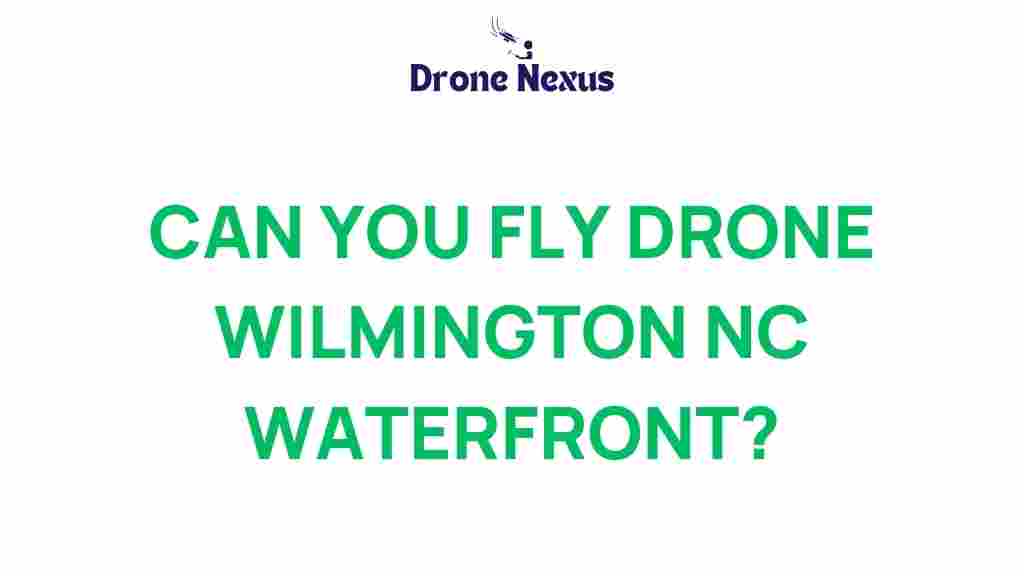Drone Regulations: Can You Fly a Drone Over Wilmington, NC’s Scenic Waterfront?
Wilmington, North Carolina, is renowned for its stunning waterfront views, historic architecture, and beautiful parks. Drones have become a popular way to capture these scenic vistas, but before you launch your drone over the picturesque coastline, it’s essential to understand the drone regulations that govern such activities. This article will provide an overview of the legal framework surrounding drone use in Wilmington, offer a step-by-step guide for responsible flying, troubleshoot common issues, and conclude with tips to ensure you enjoy your drone-flying experience while staying compliant with the law.
Understanding Drone Regulations in Wilmington, NC
Before taking to the skies, it is crucial to familiarize yourself with the drone regulations that apply in Wilmington. The Federal Aviation Administration (FAA) regulates drone operations across the United States, including North Carolina. Here are the main points you should consider:
- Registration: All drones weighing more than 0.55 pounds must be registered with the FAA.
- Visual Line of Sight: Pilots must keep their drones within visual line of sight at all times.
- Altitude Limit: Drones must not exceed an altitude of 400 feet above ground level.
- No Flying Over People: It is prohibited to fly over people not involved in the operation unless they are in a covered structure.
- Restricted Areas: Be aware of no-fly zones, such as near airports or military bases.
In addition to federal regulations, North Carolina has its own set of drone regulations. It is advisable to check local ordinances as well, as they may impose additional restrictions on drone use in specific areas, including parks and beaches. For more detailed information about state laws, visit the North Carolina Department of Transportation’s drone page.
Step-by-Step Guide to Flying Your Drone over Wilmington’s Scenic Waterfront
Now that you are familiar with the drone regulations, follow this step-by-step guide to ensure a safe and enjoyable flying experience over Wilmington’s scenic waterfront:
Step 1: Plan Your Flight
Before you head out, plan your flight. Consider the following:
- Time of Day: Early mornings or late afternoons provide the best lighting for photography.
- Weather Conditions: Wind and rain can affect your drone’s performance. Check forecasts before flying.
- Location: Identify specific spots along the waterfront that offer great views, like the Riverwalk or Wrightsville Beach.
Step 2: Check for No-Fly Zones
Utilize apps or maps that indicate no-fly zones before launching your drone. These zones are established for safety reasons and include:
- Airports and heliports
- Government buildings
- Military installations
Step 3: Prepare Your Drone
Ensure your drone is ready for flight:
- Charge the battery fully.
- Check the camera and gimbal for functionality.
- Update the firmware if necessary.
Step 4: Conduct a Pre-Flight Check
Before taking off, perform a pre-flight check:
- Inspect the drone for any damage.
- Verify GPS connectivity.
- Calibrate the compass.
Step 5: Take Off Responsibly
Once you’re ready, take off while adhering to the drone regulations:
- Launch in an open area away from people and vehicles.
- Maintain a safe distance from other drones.
- Monitor battery levels during flight.
Troubleshooting Common Drone Issues
Even the most experienced drone pilots can encounter issues. Here are some common problems and how to troubleshoot them:
Lost GPS Signal
If your drone loses GPS signal:
- Return to a location where the signal was strong.
- Manually control the drone until the signal is restored.
Drone Won’t Take Off
If your drone refuses to take off:
- Check battery levels and ensure they are fully charged.
- Inspect the propellers for damage or obstructions.
Connection Issues
If you experience connectivity issues:
- Restart the drone and the remote controller.
- Ensure the app is updated and functioning correctly.
Respecting Wildlife and Local Residents
When flying your drone in Wilmington, always respect the local wildlife and residents. Here are some guidelines to follow:
- Keep Distance from Wildlife: Avoid flying near nesting birds or other wildlife to prevent disturbance.
- Be Courteous to Residents: Fly at reasonable hours and avoid hovering over private property.
- Follow Local Guidelines: Abide by any additional regulations set forth by parks or local authorities.
Conclusion
Flying a drone over Wilmington, NC’s scenic waterfront can be a rewarding experience, offering breathtaking views and unique perspectives of this beautiful area. However, it is vital to stay informed about the drone regulations set by the FAA and local authorities. By following the steps outlined above and respecting the environment and community, you can enjoy your aerial adventures while ensuring safety and compliance with the law.
For more information on drone regulations and safe flying practices, check out the FAA’s official site. Happy flying!
This article is in the category Safety and created by DroneNexus Team
